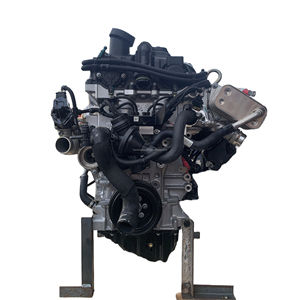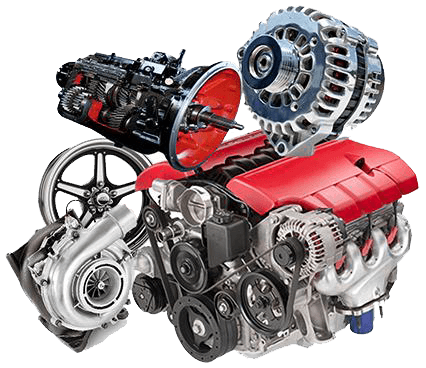Opel Corsa Engine: Efficiency and Reliability for Your Automobile
Opel Corsa Engine: Efficiency and Reliability for Your Automobile
Blog Article
Effective and effective Little Vehicle Motor Efficiency Analysis
Assessing the efficiency of little car electric motors is a nuanced job that requires a keen eye for information and a deep understanding of auto engineering concepts. By examining essential metrics such as horse power and torque, as well as reviewing gas efficiency, we can discover understandings right into just how small automobile engines can be maximized for peak performance.

Tiny Vehicle Electric Motor Efficiency Metrics
In assessing the performance of tiny car motors, essential metrics such as acceleration, gas effectiveness, and power result play a crucial role in identifying their total effectiveness and suitability for various driving problems. Acceleration, determined in secs from 0 to 60 miles per hour, indicates how promptly a tiny automobile can get to higher speeds, which is essential for combining onto highways or surpassing various other lorries. Gas effectiveness, normally gauged in miles per gallon (MPG), reflects exactly how far a small auto can take a trip on a gallon of gas, affecting running expenses and ecological sustainability. Power result, expressed in horsepower (HP) or kilowatts (kW), indicates the engine's ability to create the necessary pressure to push the car, affecting its efficiency in various roadway problems. By assessing these performance metrics adequately, suppliers, drivers, and auto lovers can make educated decisions relating to the option and optimization of tiny automobile motors to satisfy their specific requirements and choices.

Horsepower and Torque Evaluation
With a basic duty in recognizing small auto motor efficiency, horse power and torque analysis supplies insight into the engine's power delivery qualities. Horse power is a measurement of the engine's ability to do function over time, representing the rate at which work is done. In the context of small auto motors, horse power is vital for establishing velocity, top rate, and total performance. Torque, on the various other hand, gauges the engine's rotational pressure, showing its capability to overcome resistance. Small automobile engines with higher torque values typically really feel extra responsive and provide far better velocity, making them excellent for city driving and surpassing maneuvers. When analyzing horse power and torque in small automobile motors, it is important to take into consideration just how these metrics connect to provide a effective and balanced driving experience. By recognizing the connection between horse power and torque, auto designers can optimize engine performance to satisfy the specific requirements of small car applications.
Gas Effectiveness Analysis
The examination of gas efficiency in little auto motors plays an important role in determining their ecological and economic impact. In little auto motors, where compact size commonly associates with better fuel economic climate, different variables affect efficiency.
To assess fuel effectiveness, metrics such as miles per gallon (MPG) are generally made use of. This measurement indicates the distance a car can travel each of gas. Little cars and truck electric motors that attain greater MPG rankings are considered more fuel-efficient, resulting in cost savings for drivers and decreased emissions that benefit the environment. Manufacturers constantly strive to improve gas performance via innovations in engine modern technology, light-weight products, and wind resistant styles.

Optimizing Tiny Auto Engine Efficiency
Enhancing the effectiveness of little vehicle engines is paramount in maximizing efficiency and lessening operational prices. Enhancing small car engine efficiency includes a holistic strategy that thinks about various variables such as engine style, fuel monitoring systems, and overall lorry dynamics. One key facet of optimizing engine efficiency is guaranteeing proper upkeep schedules are complied with, including routine oil changes, filter substitutes, and spark plug assessments. Additionally, adjusting the engine to operate at its peak performance can considerably boost general efficiency.
One more essential consider optimizing small auto engine efficiency is the utilization of innovative technologies such as turbocharging or hybrid systems. These modern technologies can boost power result without endangering fuel efficiency, supplying an equilibrium between efficiency and economic situation. Enhancing engine performance likewise involves improving burning efficiency, lowering frictional losses, and improving thermal administration systems.
Future Trends in Small Vehicle Motors
Taking into account advancing vehicle technologies and the constant search of optimal little auto engine performance, an exploration of future fads in go tiny vehicle electric motors comes to be vital - opel corsa engine. One noticeable trend on the horizon is the raising assimilation of electric powertrains in little cars and trucks. As the automotive industry shifts towards sustainability and minimized exhausts, even more small automobile suppliers are spending in electric motor technology to enhance effectiveness and environmental kindness
An additional substantial fad is the growth of smaller sized yet more powerful turbocharged engines for small vehicles. By downsizing engine capacities and integrating turbocharging innovation, automakers can achieve higher power outputs while maintaining fuel efficiency. This trend straightens with the expanding customer need for little cars and trucks that provide a dynamic driving experience without jeopardizing on fuel economy.
Moreover, the emergence of crossbreed powertrains in tiny cars and trucks is anticipated to get traction in the future. Hybrid systems offer the advantages of both interior combustion engines and electric motors, giving better efficiency and fuel efficiency. As innovations in battery modern technology proceed, little vehicle motors are most likely to end up being even extra powerful and reliable, providing to the developing demands of customers and regulatory requirements for cleaner transport services.
Conclusion
In verdict, the analysis of tiny cars and truck motor performance metrics such as torque, fuel, and horse power efficiency is important in maximizing engine performance. By reviewing these aspects, producers published here can boost the general performance and power outcome of tiny automobile electric motors (opel corsa engine). Future patterns in tiny auto motors are most likely to focus on boosting performance while keeping fuel effectiveness, guaranteeing that tiny automobiles proceed to be a cost-effective and reliable option for customers
By examining vital metrics such as horsepower and torque, as well as examining gas efficiency, we can discover understandings into how little auto engines can be optimized for peak performance. Enhancing tiny car engine performance includes an all natural approach that considers different aspects such as engine layout, gas monitoring systems, and overall automobile characteristics.In light of progressing automotive technologies and the continuous quest of ideal little auto engine efficiency, an expedition of future fads in tiny auto electric motors comes to be essential.In conclusion, the analysis of small vehicle electric motor performance metrics such as horsepower, gas, and torque performance is essential in optimizing engine performance. Future patterns in tiny auto electric motors are likely to focus on enhancing performance while maintaining gas effectiveness, making More Help certain that small cars proceed to be a trustworthy and economical selection for consumers.
Report this page